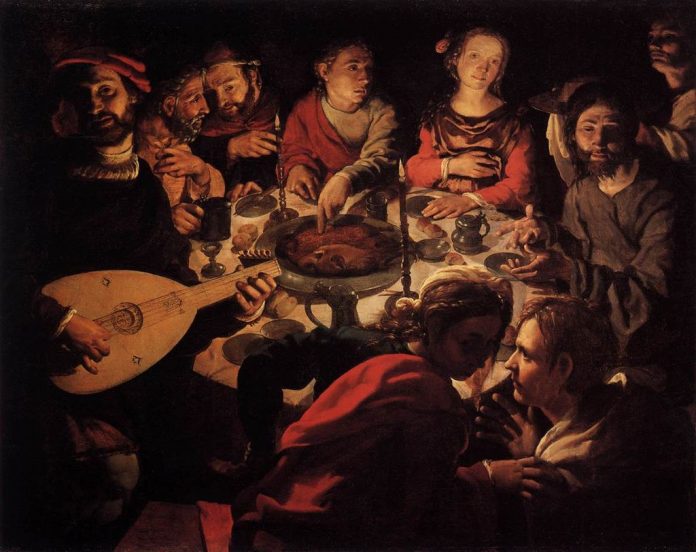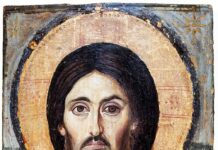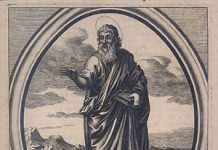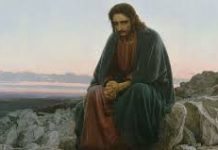
His mother said to the servants, ‘Do whatever he tells you’ (Jn. 2:5). ⧾
In the Gospel of St. John which we have just heard, Our Lord reveals his glory, that is, His divinity by means of seven signs; and the miracle just recounted is the first of these, as well as the beginning of His public life. Jesus did this, the first of his signs, in Cana of Galilee and revealed his glory; and his disciples believed in him (Jn. 2:11). The role of Our Lady as advocate is very clear: ‘They have no wine.’ In our meditation last Sunday we saw how St. Matthew and St. Luke present Our Lady as the Gebirah, the Queen Mother who presents her Son to the world as King (Mt. 2:2), Saviour and Lord (Lk. 2:11). The queen mother of Israel interceded on behalf of the subjects of the kingdom. She was their most powerful, and therefore preferred, advocate. She stood at the king’s right hand, a place of honour. Our gospel reading today shows how Our Lady fulfills this intercessory role and so we rightly invoke her as our most gracious advocate. Our text also includes Our Lady’s last recorded words: ‘Do whatever he tells you’ (Jn. 2:5). They are as it were, last words of advice given to us by a loving Mother who wishes only what is best for her children.
Just as our Lady’s last words concern Her Son, some of Our Lord’s last words as He hung upon the Cross concern His loving Mother: ‘Behold your mother!’ (Jn. 19:27). Though spoken to the Beloved Disciple, we have always understood that each faithful disciple of Jesus must likewise receive our Lady into the intimacy of his own life. This is not a matter of mere sentimentality. Our Lady’s faith precedes and accompanies us as a beacon and a model of Christian maturity for we contemplate her steadfast and faithful presence (ύπομονή) at the foot of the Cross and we understand that in the intimate connection among the mysteries of the Christian faith (nexus mysteriorum) Our Lady is never absent.
Salvation history is illumined by the presence of God’s Son. As the Church walks the pilgrimage of the ages amidst the persecutions of the world and consolations of God – to paraphrase St. Augustine – salvation history is also illumined by the loving presence of the Mother of God. As Mother of the Church and Queen she intercedes for a wayward humanity whose rejection of the laws of God always results in misery, despair and anguish. Historians have observed that the second half of the nineteenth century marked the beginning of the Marian century, in which the Blessed Mother came with messages of hope and a call to conversion (Warren Carroll, A History of Christendom: The Crisis of Christendom, Vol. 6, p.145). The Marian apparitions of the last two centuries, from Rue du Bac in Paris where our Lady gave us the Miraculous Medal, the Medal of the Immaculate Conception, to Fatima where our Lady made known the devotion to her Immaculate Heart, these Marian apparitions bear witness to the role of Our Lady as Queen in the establishment of the social kingship of Jesus Christ. These apparitions were special gifts from God destined to awaken new hope in people and no less a call to conversion and return to the truth of God whom Our Saviour has taught us to call Our Father and who also plainly said: ‘Think not that I have come to abolish the law and the prophets; I have come not to abolish them but to fulfill them’ (Mt. 5:17).
The Psalmist declares: The law of the Lord is perfect, reviving the soul; the testimony of the Lord is sure, making wise the simple; the precepts of the Lord are right, rejoicing the heart (19:7-8). The social kingship of Jesus Christ is based on this law. It is an order governed by justice and truth. When laws do not express these truths they are unjust and we are not bound to follow them. In fact, we have a duty to oppose them. The greater culture that we must now guard against with great vigilance lest we lose our faith, no longer believes in objective truth. In two generations our culture has modified itself in radically unexpected ways. Ours has become a culture in which meaning and fact are deliberately deconstructed. We have redefined and altered the meaning of human sexuality, the marriage act, marriage itself, gender, life, and even death. Consequently we have become both unbelieving and unthinking, abandoning and rejecting even the natural law, to say nothing of the divine law. When things are deprived of their true meaning, anything goes; chaos ensues and the weak and the vulnerable are always victimized. The abortion and euthanasia laws of our country are proof enough of this state of moral chaos.
The Catechism of the Catholic Church teaches us that before Our Lord’s second coming the Church must pass through a final trial that will shake the faith of many believers. The persecution that accompanies her pilgrimage on earth will unveil the ‘mystery of iniquity’ in the form of a religious deception offering men an apparent solution to their problems at the price of apostasy from the truth. The supreme religious deception is that of the Antichrist, a pseudo-messianism by which man glorifies himself in place of God and his Messiah come in the flesh (675).
It is not an exaggeration to state unequivocally, especially in view of the medical dictatorship now afflicting us that we may be living in this time. So we must heed the call for the endurance[i] of the saints, those who keep the commandments of God and the faith of Jesus (Rev. 14:12). We do so confident in the loving presence and protection of our most gracious advocate, our Lady, our Mother and our Queen; and in the fulfillment of her promise that in the end, her Immaculate Heart will triumph. May she obtain for us the grace of patient endurance, final perseverance and fidelity to her words of maternal love: ‘Do whatever he tells you’ (Jn. 2:5). With confidence we entrust ourselves to the loving protection of the Queen of the Most Holy Rosary ⧾
[i] ύπομονή – patient endurance, steadfastness, perseverance.










